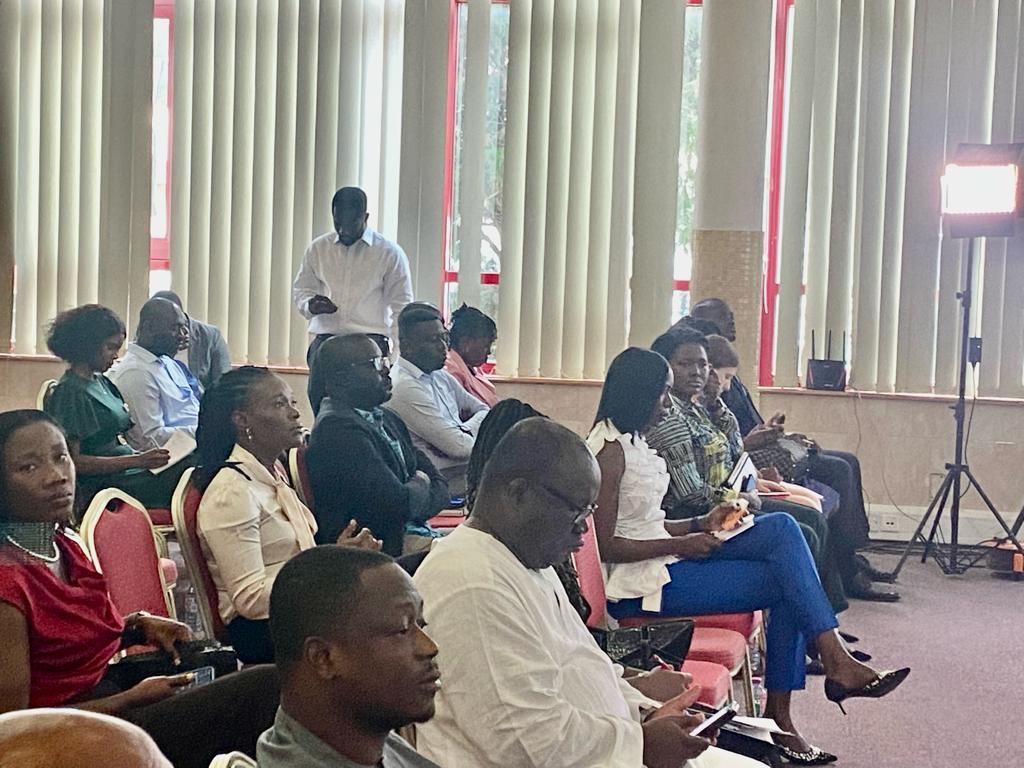By Eric Appah Marfo/Prince N.N Barnor
Accra, Aug.09, GNA — Madam Nigham Shahid, Senior Insights Manager at GSMA, a global mobile ecosystem organisation, has urged Government and regulators in the digital space to develop and implement digital literacy strategies and policies for women in the informal sector.
She also asked them to expand the role of existing community ICT centres and libraries with training facilities for continuous digital learning opportunities for all, and trained personnel, who could assist users in navigating online platforms and utilising public e-service.
Madam Shahid gave the advice whilst presenting findings from a GSMA report titled: “Inclusive E-Government Services in Ghana: Enhancing Women’s Access and Usage”, in Accra.
The event, dubbed: “Ghana Chamber of Telecommunications 22″ -Knowledge forum-, was on the theme: “Digital Public Services for All: Understanding Ghana’s opportunity to leverage mobile money for inclusive service delivery”.
The comprehensive report delves into equal access to e-government services for all, with particular focus on enhancing women’s participation.
The GSMA is a global organisation unifying the mobile ecosystem to discover, develop and deliver innovation foundational to positive business environments and societal change.
Madam Shahid urged mobile operators to co-create innovative digital training programmes in collaboration with Government, educational institutions, and nongovernmental organisations to provide hands-on skills and resources to the public.
She asked them to train and incentivise mobile agents to provide digital skills training and support to customers.
Madam Shahid advised donor agencies to support Government in researching specific digital needs and skills gaps (to assess the level of women’s abilities to use mobile apps in filling and submitting e-forms, and awareness of how to mitigate or spot online scams) to guide the development of appropriate content for women.

She noted that despite the growing adoption of digital payments enabled by mobile money, many payments for Government services and fees were still not digitised.
“Ghana has a mature mobile money industry, with the potential for adoption of e-government services and payments. Two-thirds of the female population are financially included through non-bank (other formal) financial access points, with mobile money being the primary channel.
“However, women’s mobile money accounts are less frequently used than men’s due to perceived high transaction costs, safety and security concerns, and insufficient knowledge on how to use mobile money without assistance from family or agents.”
Madam Shahid said majority of Ghanaian women surveyed for the report did not use digital channels for person-to-government (P2G) and business-to-government (B2G) payments.
She said in the Northern region, less than one in five women (16 per cent) had made a digital P2G payment, compared to an average usage rate of 42 per cent for male respondents in the country.
“The one per cent levy on mobile transactions was a major indirect impediment to furthering the use of mobile money for P2G and B2G payments by the overall population, and especially by women,” she noted.
Madam Shahid said cooperation between public and private sector actors would address demand and supply side barriers affecting women’s adoption of e-government services.
Mr Kenneth Ashigbey, Chief Executive Officer (CEO), Ghana Chamber of Telecommunications said the report findings and recommendations would help to create a more inclusive and gender-responsive digital ecosystem.
He urged stakeholders to foster collaborations between Government, civil society organisations, private sector entities and most importantly, women.
Some stakeholders called for tax subsidies on smart phone importation to promote financial inclusion.
They urged telecommunication companies to promote digital financial inclusion of female entrepreneurs by giving out smart phones on loan with flexible payment plans.
GNA